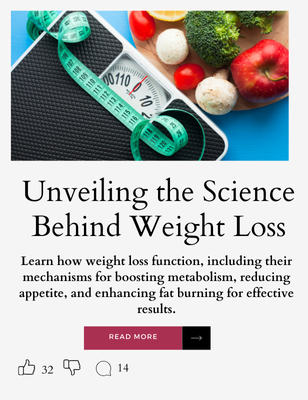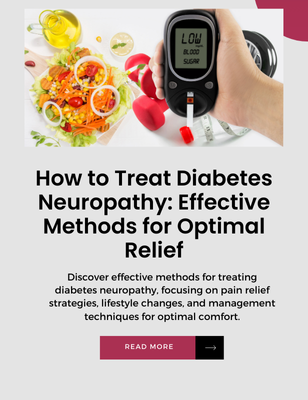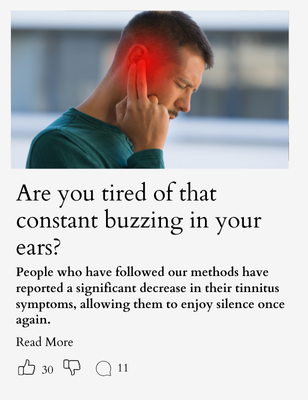Maintaining eye health is essential for overall well-being and quality of life. As vision is one of the most relied upon senses, it is important to support its function with the right nutrients. Eye supplements have come into focus as a means to provide these essential nutrients and potentially protect against common eye conditions like age-related macular degeneration and cataracts. While many claims exist surrounding the effects of various supplements, it’s essential to understand which specific nutrients are supported by scientific research and are most beneficial for maintaining eye health.

Selecting the best eye supplement can be a complex task, given the extensive range of products on the market. It’s crucial to consider the quality of the ingredients, the concentration of key nutrients like lutein and zeaxanthin, and the credibility of the manufacturer. Consulting healthcare professionals and referring to the Age-Related Eye Disease Studies (AREDS) can help in making informed choices. Additionally, supplements should ideally complement a diet rich in fruits, vegetables, and omega-3 fatty acids, which naturally support eye health. Lifestyle factors such as smoking cessation and wearing UV protective eyewear also play a significant role in preserving vision.
Key Takeaways
- Essential nutrients are crucial for maintaining eye health and protecting against age-related conditions.
- The best eye supplements contain scientifically supported ingredients and come from reputable manufacturers.
- A holistic approach to eye health includes a nutrient-rich diet and healthy lifestyle habits.
Understanding Eye Health

Maintaining eye health is essential for clear vision, which is a critical aspect of navigating and interacting with the world. The eyes are highly functional organs susceptible to a variety of diseases that can impair vision.
Key Functions of the Eye
The cornea and lens work in tandem to focus light onto the retina, a layer of tissue at the back of the eye that is sensitive to light. The retina translates the light into neural signals, which the brain interprets as images. Central to the retina is the macula, which is responsible for central vision, allowing one to see fine details clearly.
Common Eye Diseases
Age-related macular degeneration (AMD) is a condition where the macula deteriorates, leading to loss of central vision. Cataracts, a clouding of the lens, cause a decrease in vision and are commonly associated with aging. Glaucoma results from increased pressure within the eye, damaging the optic nerve and potentially leading to blindness. Diabetic individuals may suffer from diabetic retinopathy, where high blood sugar levels damage the blood vessels of the retina. These conditions highlight the importance of regular eye check-ups to maintain eye health and prevent vision loss.
Role of Nutrition in Eye Health
Proper nutrition plays a critical role in maintaining and supporting eye health, with certain nutrients being essential for protecting vision and minimizing the risk of eye diseases. A deliberate choice of foods rich in specific vitamins and antioxidants is key to sustaining good eyesight.
Essential Nutrients for the Eyes
A range of nutrients is paramount for optimal eye health. Vitamins such as vitamin A, crucial for preventing night blindness and dry eyes, and vitamin E, which protects the eyes from oxidative stress, are found abundantly in leafy green vegetables and nuts. Omega-3 fatty acids, essential for retinal function, can be obtained from fish like salmon, as well as flaxseeds and walnuts. Other important nutrients include:
- Lutein and Zeaxanthin: These antioxidants, found in high concentrations within the macula, filter harmful blue light and are present in foods like kale and spinach.
- Vitamin C: Important for the health of ocular blood vessels, vitamin C is abundant in citrus fruits, berries, and vegetables such as bell peppers.
- Zinc: This mineral helps with the delivery of vitamin A from the liver to the retina and can be found in beef, pumpkin seeds, and legumes.
Impact of Diet on Vision
The impact of one’s diet on vision cannot be overstated. A healthy diet incorporating a variety of whole foods is associated with reduced risk of developing age-related macular degeneration (AMD) and cataracts. Foods rich in the aforementioned nutrients contribute to a balanced diet, which supports long-term eye health. For example:
- Consuming a diet high in omega-3 fatty acids from fish has been linked to a lower incidence of dry eye syndrome.
- Regular intake of nuts and seeds, which contain vitamin E, is associated with the prevention of cataract formation.
- A diet lacking in vegetables and fruits, and thereby deficient in essential vitamins and antioxidants, is a risk factor for various eye conditions.
Incorporating a wide variety of colorful fruits and vegetables, nuts, seeds, and fish enables individuals to receive a spectrum of eye-protective nutrients.
The Science Behind Eye Supplements
Eye supplements are designed to provide nutritional support specifically for visual health, often targeting age-related concerns and overall eye function.
Components of Eye Supplements
The most common components of eye supplements are antioxidants and carotenoids, essential for maintaining eye health. Antioxidants like vitamin C, vitamin E, and zinc work by neutralizing harmful free radicals in the body, thus protecting the eyes from oxidative stress which may lead to degeneration. Carotenoids such as lutein and zeaxanthin are pigments found in high concentrations in the eye’s macula and are crucial in protecting against blue light and oxidative damage.
Eye supplements may also contain vitamin A and beta-carotene, which are essential for good vision, particularly in low-light conditions. They are converted to retinol, a compound vital for the maintenance of the cornea. Copper often accompanies zinc to prevent copper deficiency, which may occur when taking high levels of zinc. These minerals also play a role in the enzymes responsible for eye health.
How Supplements Support Eye Function
Supplements support eye function by replenishing essential nutrients that the diet may lack. The carotenoids lutein and zeaxanthin are concentrated in the macula, a part of the retina responsible for central vision, and have been shown to improve pigment density in the eye. This denser pigment forms a macular shield that absorbs excess light and helps protect the eyes from damage by high-energy light waves.
The antioxidants provide further aid in this defense system. For instance, vitamin C helps regenerate other antioxidants, such as vitamin E, and supports the health of blood vessels in the eyes. The combination of these supplements may contribute to the slowdown in the progression of conditions like age-related macular degeneration (AMD) and cataract formation. These supplements don’t treat or prevent eye diseases, but they may help maintain eye health and delay or mitigate the progression of existing eye conditions.
Research from the Age-Related Eye Disease Studies (AREDS and AREDS2) has been pivotal in understanding the benefits certain nutrients have on eye health. It suggests that a specific blend of antioxidants, vitamins, and minerals can play a role in eye health maintenance, particularly for those at a higher risk of eye diseases.
Examining the AREDS Reports
Age-Related Eye Disease Studies (AREDS) have provided significant insights into the management of age-related macular degeneration (AMD). Their findings have led to the development and recommendation of specific supplement formulations aimed at slowing the progression of this eye disease.
AREDS vs. AREDS2 Formulations
The original AREDS formulation, developed after the first Age-Related Eye Disease Study, combined antioxidants and zinc. This blend included Vitamin C, Vitamin E, beta-carotene, zinc, and copper, and it was shown to reduce the risk of progression to advanced AMD.
However, further research led to the AREDS2 formulation, an enhancement of the first. AREDS2 maintained the same levels of Vitamin C, Vitamin E, and zinc. It eliminated beta-carotene due to an associated increased risk of lung cancer in smokers and added lutein and zeaxanthin—nutrients found to be more effective in reducing the risk of AMD progression. Omega-3 fatty acids were also included initially but were later concluded not to provide additional benefits for AMD.
The improvements from AREDS to AREDS2 were based on current evidence of safety and efficacy. Multiple studies endorse the effectiveness of AREDS2 supplements in managing age-related eye diseases, notably AMD. While the AREDS formulation set the stage, AREDS2 is now considered the optimal supplement formula for those at high risk of progression to advanced AMD.
Specific Nutrients and Their Effectiveness
Nutritional support for eye health focuses on compounds that may help to maintain vision and reduce the risk of age-related degradation. Scientific studies suggest that certain vitamins, minerals, and antioxidants play a role in preserving eye health and functionality.
Lutein and Zeaxanthin
These carotenoids are found in high concentrations in the macula, a part of the retina responsible for central vision. Lutein and zeaxanthin are antioxidants that help to protect the eyes from harmful blue light and may reduce the risk of chronic eye diseases. A study on lutein and zeaxanthin indicates that they support eye health.
Vitamin C and Vitamin E
Vitamin C is an antioxidant that supports the health of blood vessels in the eye, and it’s believed to combat the formation of cataracts. On the other hand, Vitamin E has been implicated in protecting against age-related macular degeneration (AMD) progression. These vitamins work synergistically to fend off damage from free radicals which can degrade eye health over time.
Minerals and Other Nutrients
Important minerals like zinc and copper are essential for maintaining the health of retina and are often included in eye health supplements. Zinc is a vital mineral that helps vitamin A to create a pigment called melanin, which protects the eye. Omega-3 fatty acids are crucial for retinal function and visual development. At the same time, the role of beta-carotene, once thought to be critical for eye health, has been more nuanced, with a focus on its conversion to vitamin A.
Natural Sources of Eye-Healthy Nutrients
Consuming a diet rich in specific nutrients can contribute significantly to eye health. Foods such as leafy greens, fish, and fruits are excellent sources of vitamins and omega-3 fatty acids, which are essential for maintaining vision and reducing the risk of eye diseases.
Vegetables and Leafy Greens
Vegetables such as carrots and bell peppers are high in beta-carotene, which the body converts into vitamin A, which is crucial for good vision. Leafy green vegetables like spinach, kale, and collard greens provide lutein and zeaxanthin. These antioxidants protect the eyes from harmful light waves and can reduce the risk of cataracts and macular degeneration.
- Spinach: Rich in lutein and zeaxanthin
- Kale: High levels of vitamin K and minerals
- Broccoli: Contains both eye-healthy vitamins and fiber
Fish and Nuts
Omega-3 fatty acids, found in fish such as salmon, mackerel, and tuna, are essential for eye health, supporting the retina’s function and helping to combat dry eye syndrome. Walnuts, flaxseeds, and chia seeds are plant-based options rich in omega-3s, supporting general eye health.
- Salmon: High in Omega-3 DHA
- Mackerel: Another excellent source of Omega-3s
- Walnuts: Plant-based omega-3s and vitamin E
Fruits and Legumes
Oranges and mangoes are an excellent source of vitamin C, an antioxidant that may reduce the risk of cataract formation. Sweet potatoes and corn are additional natural food sources that can help enhance overall eye health due to their substantial content of vitamins and carotenoids.
- Orange: Vitamin C supports blood vessels in the eyes
- Mango: Contains vitamins A, C, and E
- Sweet Potato: Provides beta-carotene and vitamin E
Selecting the Best Eye Supplement
When seeking the best eye supplement, consumers should focus on the bioavailability of key ingredients and their efficacy in targeting specific eye conditions like macular degeneration and cataracts.
Quality and Absorption
The quality of an eye supplement hinges on its ingredients and their bioavailability. A supplement with high-quality ingredients such as natural vitamin E (D-alpha-tocopherol) ensures better absorption and effectiveness. For optimal results, individuals should look for products that contain bioavailable forms of nutrients, as these are more easily absorbed by the body.
Combating Specific Eye Conditions
Different eye supplements cater to various eye-related health concerns. Here, one should consider their specific needs:
- Macular Degeneration (AMD): Supplements containing pigments like lutein and zeaxanthin may help slow the progression of AMD.
- Cataracts: Antioxidants such as selenium and vitamins C and E have been linked to a reduced risk of cataract formation.
- Diabetes-Related Complications: Diabetic individuals may benefit from supplements that target inflammation and oxidative stress to mitigate the risk of diabetic retinopathy.
- Glaucoma and Dry Eye Disease: Essential fatty acids and other anti-inflammatory agents can support the management of glaucoma and dry eye syndrome.
By focusing on specific conditions and understanding which nutrients aid in prevention and management, users can make informed selections in choosing the best eye supplement for their needs.
Lifestyle Factors Affecting Eye Health
Daily habits and environmental exposures can significantly influence the health of one’s eyes. Key lifestyle choices such as smoking and alcohol consumption, as well as protection from harmful light, play pivotal roles in the maintenance of eye health and the prevention of eye diseases.
Impact of Smoking and Alcohol
Smoking has a detrimental impact on eye health, compounding the risk of developing cataracts and glaucoma—two leading causes of vision impairment. Tobacco smoke exposes the lens and retina to oxidative stress, leading to damage and increasing the likelihood of disease. Additionally, excessive alcohol consumption can lead to toxic substances building up in the body, causing inflammation and weakening the body’s ability to absorb essential vitamins, thus indirectly impacting eye health.
Protection Against Blue and Ultraviolet Light
Blue light, primarily emitted by screens and digital devices, alongside ultraviolet (UV) light from the sun, can cause harm to the retina and the eye’s lens. Protection against these forms of light is essential; wearing sunglasses with UV protection helps shield the eyes from UV rays, a known risk factor for cataracts. For blue light, screen filters and blue light-blocking glasses can reduce exposure, potentially decreasing the risk of digital eye strain and retinal damage.
Considerations Before Taking Eye Supplements
Before investing in eye supplements, individuals must consider professional guidance and the implications of mixing supplements with other medications or conditions. These factors are crucial to ensure safety and effectiveness.
Consulting Healthcare Professionals
One should consult an ophthalmologist or a healthcare provider to personalize supplement choices, especially if there’s a concern for conditions like age-related macular degeneration. Medical professionals can also provide insights into the latest clinical trials that validate the quality and absorption of specific supplements.
Potential Interactions and Side Effects
Understanding that even natural supplements can cause adverse effects or interact with medications is essential. Substances like antioxidants found in eye supplements may vary in concentration and potency. Monitoring by healthcare providers is recommended to minimize risks and enhance therapeutic outcomes.
Promoting Overall Eye Wellness
Integrating a nutritious diet, healthy lifestyle, and quality supplements is imperative to safeguard eye health and maintain optimal vision.
Importance of a Healthy Diet
Diet plays a crucial role in maintaining eye function. Nutrients like vitamins C and E, zinc, lutein, and omega-3 fatty acids are essential for preventing age-related vision problems such as macular degeneration. A healthy diet of fruits, vegetables, and fish can provide these vital nutrients. For instance, leafy greens are high in lutein, while fish like salmon are excellent sources of omega-3 fatty acids. Ensuring a balanced diet is a foundation for better vision and can help prevent conditions like night blindness.
Combining Diet, Lifestyle, and Supplements
A wholesome diet and a healthy lifestyle, including regular exercise and protection against UV rays, contribute to overall eye wellness. However, supplements can play a role in filling nutritional gaps. Quality eye health supplements that include ingredients like lutein and zeaxanthin support eye health by filtering harmful, high-energy blue wavelengths of light. It’s vital to choose supplements that complement a diet of whole foods, as they offer a broad spectrum of nutrients necessary for maintaining clear vision.
By adopting these habits, individuals can actively support their eye health and function, potentially improving their quality of vision and life.
Frequently Asked Questions
In navigating the various options for eye health, specific vitamins and nutrients have garnered attention for their potential benefits. This section answers common inquiries about enhancing vision and managing eye health concerns through dietary supplements.
What are the top vitamins for improving blurry vision?
For improving blurry vision, vitamins like Vitamin A, known for its critical role in vision health, and lutein, a nutrient that supports eye function, are considered important.
Which supplements are most effective for macular degeneration?
Supplements containing a combination of antioxidants, zinc, and omega-3 fatty acids are often recommended for those at risk of or managing macular degeneration.
How can I enhance my vision through dietary supplements?
Enhancing vision may be supported by dietary supplements rich in Vitamins C and E, lutein, zeaxanthin, and omega-3 fatty acids, which contribute to overall eye health.
What nutrients are beneficial for reducing eye floaters?
While not all eye floaters can be reduced through nutrition, maintaining a diet with sufficient vitamins such as Vitamin C and Vitamin E, along with antioxidants, can support the health of the vitreous in the eye.
Are there specific foods that serve as natural eye vitamins?
Foods like leafy green vegetables, carrots, berries, and fatty fish are natural sources of eye-friendly vitamins and nutrients, functioning similarly to natural eye vitamins.
Do scientific studies support the efficacy of eye supplements?
Scientific studies generally support the efficacy of eye supplements, specifically formulas like the AREDS and AREDS2, in reducing the risk of progression in certain eye conditions like macular degeneration.


















